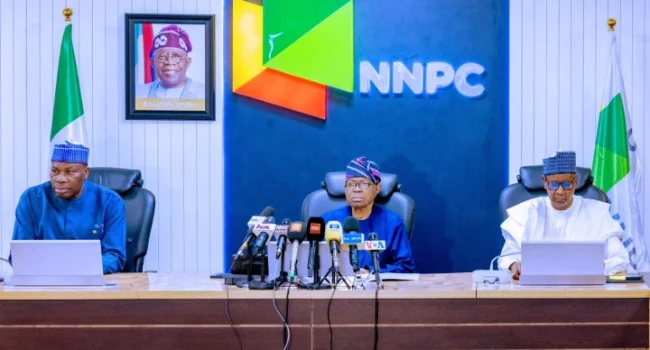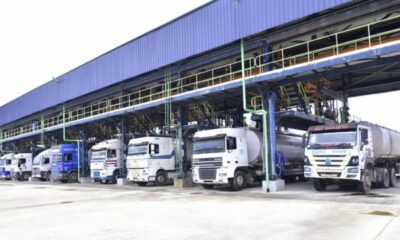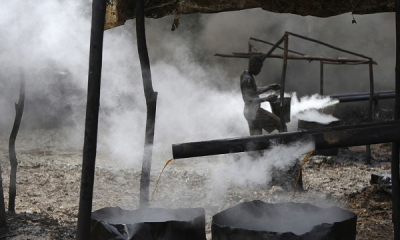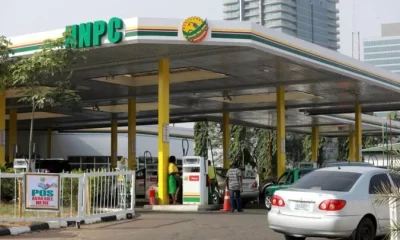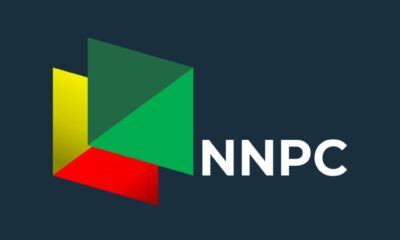The Nigerian National Petroleum Company (NNPC) Limited has declared a profit of N3.3 trillion for the fiscal year 2023.
Pius Akinyelure, chairman of the NNPC board, spoke during a media briefing on the company’s 2023 audited financial statements (AFS) on Monday.
Akinyelure said the profit increased by N749 billion compared to the N2.54 trillion posted in the 2022 financial period.
In 2018, the state-owned oil company posted a loss of N803 billion and N1.7 billion in 2019.
Reversing the deficit, in 2020, NNPC posted a profit of N287 billion, progressing to record another N674.1 billion profit in 2021.
Also, NNPC’s revenue last year increased to N24 trillion, from N8.81 trillion in 2022, according to the NNPC board chairman.
He said the company declared a dividend of N2.1 trillion to its shareholders in 2023.
Akinyelure said the excellent performance last year came as the fruit of the Petroleum Industry Act (PIA) 2021, and the commitment of the board, management and staff of the company.
Also speaking, Umar Ajiya, chief financial officer of the company, said the release of the AFS is a testament to the company’s commitment to transparency and accountability.
“Our fiscal performance reflects both strategic foresight and operational resilience. Despite inherent challenges of our operational and economic environment, we have improved the productivity and the financial performance of this great company,” Ajiya said.
Ajiya added that posting such impressive returns demonstrates NNPC’s dedication to sustaining profitability and supporting the attainment of national energy security as stipulated in the Petroleum Industry Act (PIA) 2021, and by extension, as expected by the company’s shareholders.
He said the NNPC would announce an initial public offer (IPO) once the shareholders and board make a decision.
Ajiya also debunked claims on subsidy payment, saying the company was only “taking care of the shortfall on petrol importation between it and the federation”.
NNPC TARGETS 2 MILLION DAILY CRUDE OIL PRODUCTION BY END OF 2024
In her remarks at the briefing, Oritsemeyiwa Eyesan, executive vice-president, upstream, said with improvements witnessed as a result of the renewed vigour in the war against crude oil theft and pipeline vandalism, NNPC targets 2 million barrels per day (bpd) of crude oil production by the end of the year.
On the current fuel queues in parts of Lagos and the federal capital territory (FCT), Dapo Segun, executive vice-president, downstream, appealed for understanding from Nigerians.
Segun said the company is working with relevant stakeholders to address the distribution, evacuation and logistics challenges.

 News3 years ago
News3 years ago
 Entertainment2 years ago
Entertainment2 years ago
 Privacy3 years ago
Privacy3 years ago
 News3 years ago
News3 years ago
 Sports3 years ago
Sports3 years ago
 Entertainment3 years ago
Entertainment3 years ago
 News3 years ago
News3 years ago
 Opinion3 years ago
Opinion3 years ago
